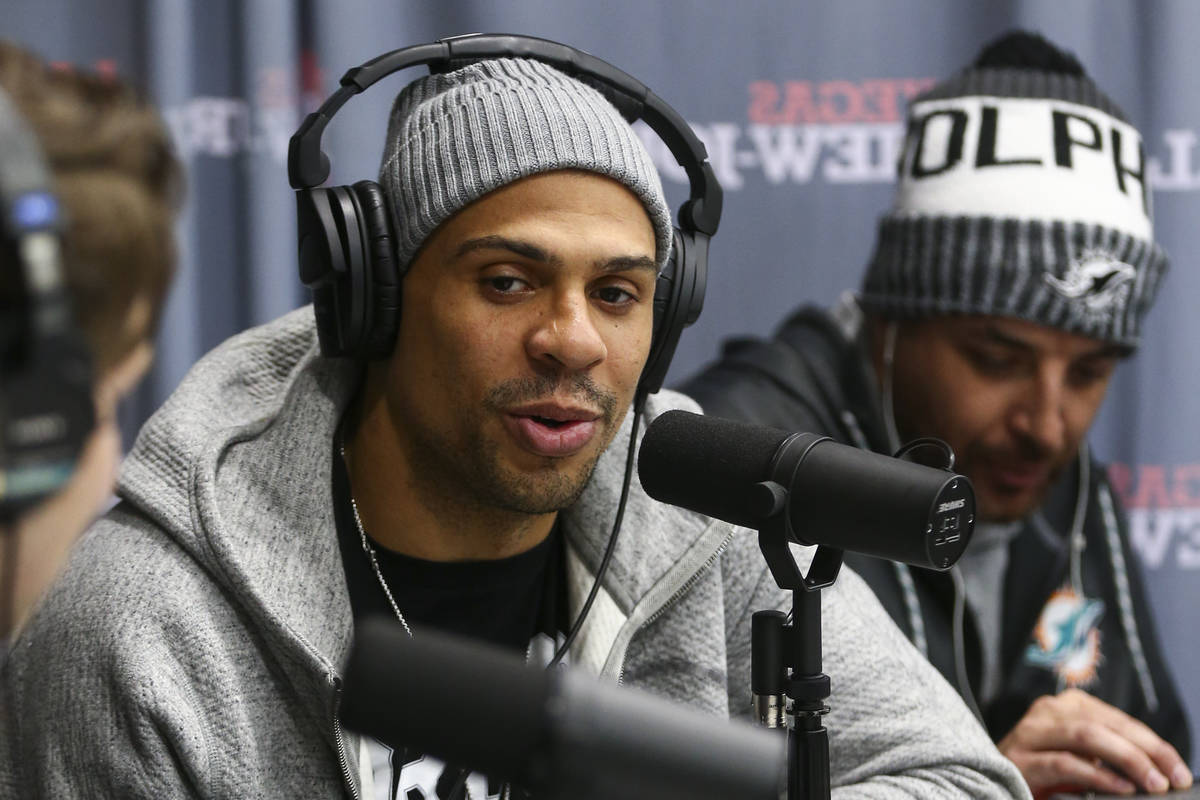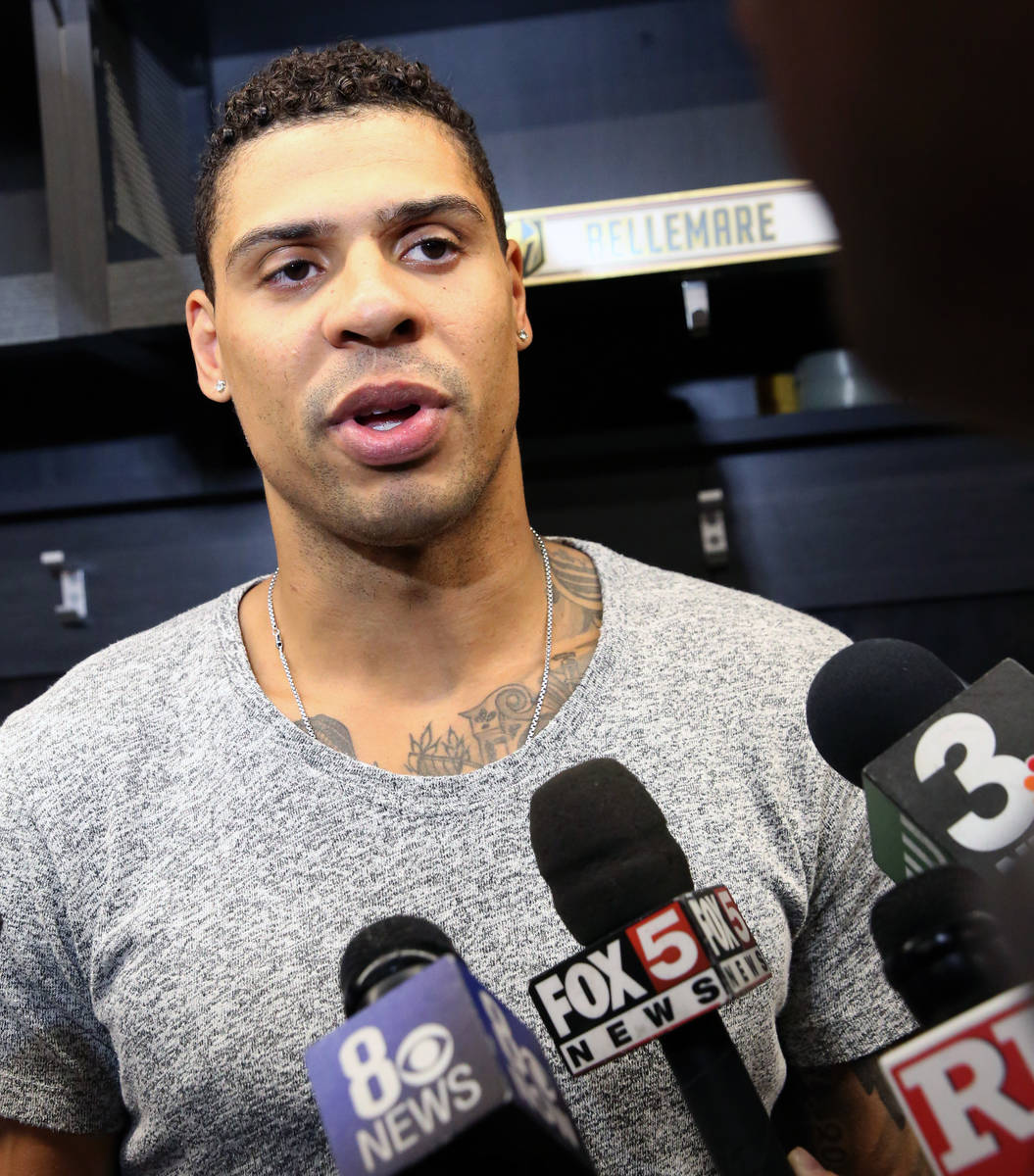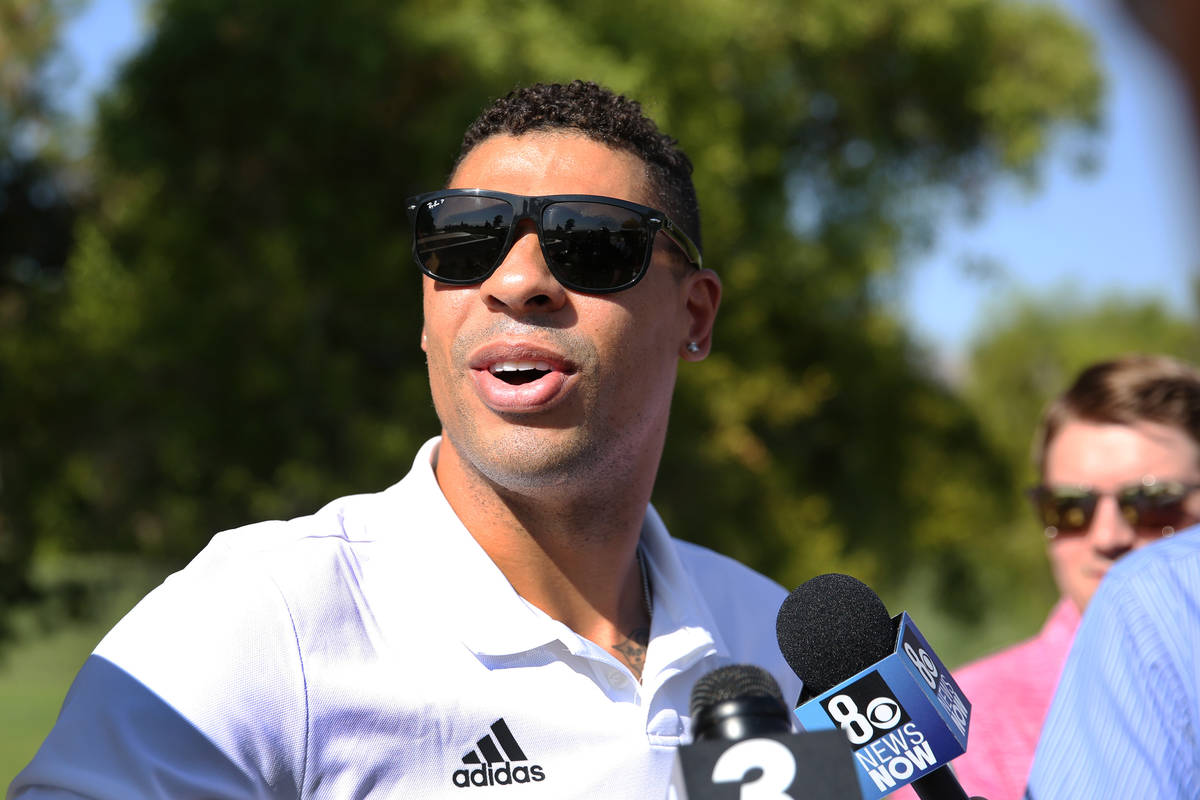Ryan Reaves speaks out against racism on Golden Knights podcast
Ryan Reaves received several text messages in the past week asking if he was going to make a statement as anti-racism demonstrations swept across the globe.
The Golden Knights forward contemplated what to do for the past five or six days before he became the first player on the team to wade into the discussion Thursday.
Reaves was a guest on the team’s podcast and spoke for more than 20 minutes about his own experiences with racism in hockey in addition to the worldwide Black Lives Matter protests.
Ryan Reaves speaks up on today's edition of the #SLGND podcast 👏🎧
Listen & subscribe: https://t.co/E0sxbBBGZ1 @theDlasvegas pic.twitter.com/nvEAQvgpzu
— y-Vegas Golden Knights (@GoldenKnights) June 11, 2020
“It’s tough to watch because so many people are suffering,” Reaves said on the podcast. “There’s been so much damage. There’s been a lot of unnecessary lives lost and a lot of communities destroyed. It’s tough because it’s the culmination of years and years of things going wrong for black people within the community.”
Reaves, who was raised in Winnipeg, Manitoba, is the lone black player on the Knights’ 23-man roster. His father, Willard, is from Flagstaff, Arizona, was a three-time all star in the Canadian Football League and briefly appeared in the NFL in 1989.
Willard Reaves, who is African American, also served as a sergeant with the Manitoba Sheriff Services after his playing career. That has left Ryan Reaves in a difficult spot as he tries to resolve his feelings about the unrest that has occurred since George Floyd was killed while in police custody on Memorial Day in Minneapolis.
“You’re never going to hear me say cops are bad because I have a lot of respect for what they do and they keep our communities safe,” Reaves said. “But at the same time, there’s been marches, there’s been protests, there’s been talks, there’s been communication, and nothing seems to be changing. And if you’re going to keep going down the same path and nothing happens, eventually there’s going to come a boiling point. And I think we’ve hit that right now.”
Reaves, 33, acknowledged he hasn’t experienced the same level of racism as others despite being the target of racial slurs in his youth hockey days.
At one point during the podcast discussion, though, Reaves described an incident from several years ago when he was pulled over in Winnipeg after rolling through a stop sign while driving a “beat-down Pontiac 6000.”
“I just locked eyes with him in my rearview mirror, and right when we locked eyes, he stopped and he undid his gun and he pulled it out halfway,” Reaves said. “It just, it made me so mad because I could tell it was because I was black. And the first thing that came out of my mouth was, ‘Do you do that with everybody?’
“My dad was a cop in that city, and (the officer) didn’t know who I was. But for him to look at me that way, it just kind of hurt.”
Reaves played for the Blues and was living in St. Louis in 2014 during the protests in Ferguson, Missouri, after Michael Brown was shot and killed by a police officer.
While the frustration was evident in Reaves’ voice that little has changed in six years, he remained hopeful the latest protests would lead to meaningful reform in the police community.
Reaves was one of several players on the Knights and across the NHL to support the #BlackoutTuesday movement on social media June 3.
“There’s no place for racism in this world. I think a lot of us have talked as a team, but at the end of the day, we’re more into listening right now,” Knights teammate Mark Stone said.
Reaves will lend his voice to the Hockey Diversity Alliance that was founded Monday by seven players, including Philadelphia Flyers forward Chris Stewart, one of his best friends, and Evander Kane, his bitter on-ice adversary.
One of Reaves’ personal projects is increasing diversity in hockey and exposing the game to predominantly minority communities.
“They want to see, ‘Hey, this guy dresses like me. This guy wears Jordans like me. This guy kind of talks like me,’ ” Reaves said. “I was brought up and the one message I try to give to my kids is it doesn’t matter what you look like (or) where you come from, everybody’s equal. … Until that happens, there’s never going to be any real peace in the world, but especially right now in North America.”
Contact David Schoen at dschoen@reviewjournal.com or 702-387-5203. Follow @DavidSchoenLVRJ on Twitter.




























